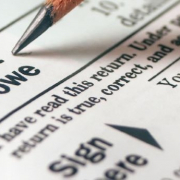4 Simple Tricks For Boosting Your Credit Score
 Is your credit score lower than you’d like it to be?
Is your credit score lower than you’d like it to be?
If so, you probably already know that a low credit score can be a big financial burden to carry.
Your low score may make you seem like an undesirable customer to companies you want to do business with and it can make it much more expensive for you to borrow money — if you can get approved for a loan at all. The good news is that you aren’t stuck with a substandard credit score forever.
There are simple steps you can take today to boost your score and end up with one that opens doors for you instead of imposing financial hurdles. Here are four of those steps you should consider taking.
1. Set Up Automated Payments
While you probably have the best intentions when it comes to paying credit cards on time, sometimes, life gets in the way and you forget to send in that check by the deadline or log on to make the payment. Unfortunately, even a single missed credit card payment could cause your score to drop by more than 100 points.
To make sure your credit score never takes a big hit because you don’t submit your payment on schedule, set up your cards to automatically draft at least the minimum payment from your bank account. While you should pay off your balance in full each month if you can, paying at least the minimum automatically ensures you’re never accidentally late.
Your payment history is one of the key factors that determines your score. So if every debt is paid on time automatically, you’ll develop the type of positive payment history that will earn you top marks.
2. Ask For Credit Line Increases
Having more credit available to you also helps increase your credit score. After all, the second most important factor that determines your score — after payment history — is credit utilization ratio.
To calculate your credit utilization ratio, divide your outstanding debt balance by the credit you currently have available. The more credit available, the lower your utilization ratio will be when doing this calculation, even if you end up carrying a credit card balance. You’ll have a much better utilization ratio if you owe $1,000 on a card with a $10,000 limit compared to one where you owe $1,000 with a $2,000 limit.
The good thing about asking for credit line increases is that many lenders will adjust your credit line upward without a hard inquiry. Hard inquiries are posted on your report after you’ve requested new credit and they remain on your report for two years. If you get too many, your credit score will take a hit. Confirm with your credit issuer that you don’t agree to undergo a hard credit check to have your credit line raised; otherwise, the inquiry could hurt you even as the higher credit line helps you.
3. Keep Your Credit Balances Low
There’s no reason to carry a balance on your card to build credit, and lenders prefer you use less than 30% of your available credit. Keeping your balance low is also helpful to avoid costly interest expenses, which can hurt you financially in other ways besides just reducing your credit score.
It’s important to know that creditors report your outstanding balance at different times during the billing cycle. So even if you pay off your credit card balance in full, you may appear to have a high balance depending on when the card issuer reports to the credit reporting agencies. If you find your card is showing you owe a few thousand dollars, even though you always pay off the balance, find out when the card issuer reports to the credit reporting agencies and pay off your balance before that date.
Everyone makes mistakes. And if your credit score isn’t perfect, this may be because you’ve made them in the past in connection with your credit accounts. Perhaps you missed a payment on your credit cards or even defaulted on a debt in the past. If so, the record of your mistakes could stay on your credit report for many years, dragging your credit score down.
One way to deal with these past problems: Ask creditors to forgive them. You can write a letter or email to a creditor that you’ve generally been a good customer with and ask them to remove a record of a late payment from your credit history. They may say yes. You could even try negotiating with a lender you defaulted on and ask if they’ll remove the record of the default if you pay your outstanding balance in full.
While there’s no guarantee a creditor will work with you to help raise your credit score, it takes little effort to ask. You may be pleasantly surprised if you end up seeing negative information removed and your score going up as a result.
Try These Tricks For Boosting Your Credit
Now you know how you can raise your credit score. Hopefully, by trying out some of these tips, your score will go up steadily over time. Before you know it, you’ll be in the upper echelon of borrowers given the very best deals and approved for credit with any lender of your choosing.
Source: Casper Star Tribune

